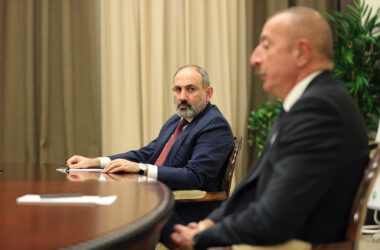Russian tourists are making a strong return to Europe, with a noticeable increase in hotel bookings across popular destinations like Italy, Spain, and France. Local travel aggregators report a significant rise in bookings for the upcoming spring season, despite the continued complexity and higher costs of travel compared to pre-Ukraine war conditions.
“The number of hotel bookings in Italy for the upcoming spring season, from March 1 to May 31, 2025, through the OneTwoTrip portal, has increased by a third compared to the same period last year; in Spain, it has risen by 65%, and in France, by 45%,” writes the Russian newspaper Vedomosti, adding that these countries now account for a larger share of outbound trips. For example, Italy’s share has risen to 9.8% year-on-year, compared to 7.3% last year.
Another booking platform, Yandex.Travel, reports an even more striking increase in interest for traditional European destinations. “According to ‘Yandex.Travel,’ the number of hotel bookings in Italy has increased by 6.5 times, in France by almost 7.5 times, and in Spain by 7.6 times,” adds the daily.
Though direct flights between Russia and the EU are still suspended, travelers can still fly to Europe via countries not subject to sanctions, such as Turkey or Serbia. The Moscow Times (MT) notes, “A trip from Moscow to Paris, which used to take several hours and cost a few hundred euros, now takes about 12 hours and costs around 2,000 euros.” The website also highlights the emergence of a new “military middle class” in Russia due to economic shifts.
“The stabilization of the Schengen visa issuance process has contributed to the increased demand,” says Dmitry Gorin, Vice President of the Russian Union of the Tourism Industry. He noted that in 2024, about 449,000 Schengen tourist visas were issued to Russians by 17 out of 29 Schengen Area countries.
While some EU nations, like the Czech Republic, have halted the issuance of tourist visas to Russian citizens due to the ongoing war in Ukraine, it remains possible for Russian tourists to circumvent these restrictions by traveling from other Schengen countries.
Despite the challenges, non-EU destinations like Turkey continue to dominate Russian travel patterns. Turkey, with its direct air connections and visa-free entry for Russians, was the most visited destination last year, with 6.2 million trips. Other popular destinations include Abkhazia in Georgia (5.81 million trips) and Kazakhstan (2.81 million trips), according to MT.




